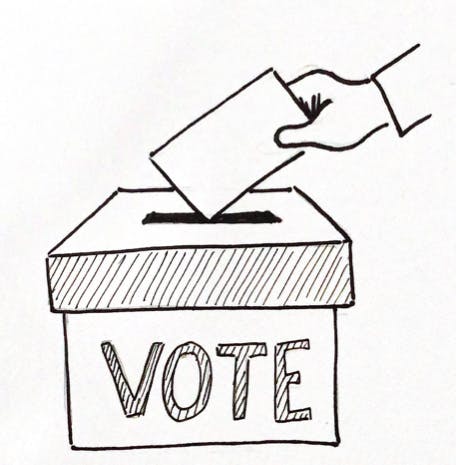When I was born in 1971, atmospheric carbon dioxide concentrations were 324 ppm — roughly consistent with where they had been for the last 100,000 years; roughly consistent with the environmental conditions that allowed our species to transition from nomadic hunter-gatherer societies to stable civilizations that could domesticate livestock and crops; build cities; and create art, culture and science.
When I graduated from Middlebury in 1993, we were at 353 ppm.
Today, at the age of 49, we are over 410 ppm.
That’s a nearly 33% increase in my lifetime.
When I graduated from college, a Republican administration had just committed the country to an international agreement to set a price on chlorofluorocarbons through a system of tradable emissions permits in the Montreal Protocol. It was our expectation that the incoming Clinton administration would do the same for greenhouse gases in the Kyoto protocol. And yet it didn’t. Why?

Because politicians decided to punt the problem down the road and leave the generation of tomorrow to deal with the issues of today.
That’s not leadership, but it is politically understandable; after all, future generations don’t vote in the current election. And now that future is upon us.
In 2020, college-aged Americans are projected to make up 10% of the voting-age population. But, if historical voting trends continue, just 30–40% of them will vote. Conversely, more than 70% of voters over the age of 65 will vote.
If you ever wonder why politicians talk so much more about Social Security and Medicare than they do about climate change, that’s why.
[pullquote speaker="" photo="" align="center" background="on" border="all" shadow="on"]It is in your power to turn that around. But only if you vote.[/pullquote]
We are less than two weeks away from one of the most important elections of our lives. As we move closer and closer to the 2020 election, you must ask yourself:
Should we finally address climate change at a level that is scientifically necessary, or should we simply settle for that which we judge to be politically possible?
Should we address the economic inequities that have been borne so heavily by younger and minority communities, or should we prioritize tax cuts for the old and already wealthy?
Should we recognize the tolerance of your generation, who sees gay marriage and a woman’s right to choose as yesterday’s battles, or should we prioritize the values of those who still want to relitigate 1990s culture wars?
I know how I answer those questions, but too many of my colleagues will instead prioritize the interests of older, voting Americans over your generation.
There are nearly 20 million college students in the United States. You have an enormous amount of power. You have the ability to sway elections up and down the ballot. The 2018 midterm elections saw record turnout levels, and yet, a handful of congressional races were won or lost by less than 2% margins. This presidential election year, young people have the power to decide critical seats for the U.S. House and Senate.
Democracy is an amazing tool. But only if you use it.

Vote by November 3.
Sean Casten ’93 serves as the U.S. Representative for Illinois's 6th congressional district.
Why you should vote — right now

Sean Casten '93
Comments


